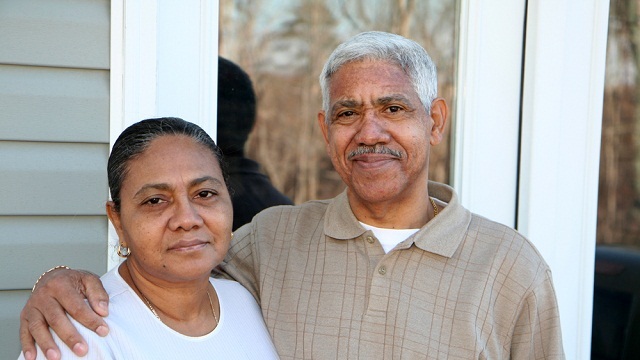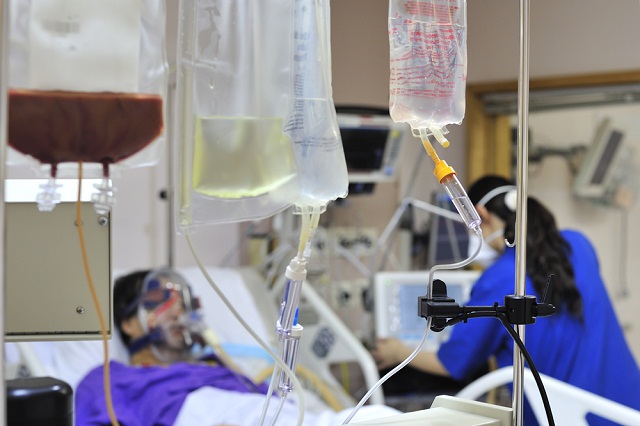Surprising Science
All Stories
New research out of Canada has found a genetic link between being obese and having lower incidents of depression. Researchers speculate there is an evolutionary reason for the connection.
A new electronic device which connects directly a blind patient’s retinas allows the individual to read input, in the form of braille, as actual words with a high rate of success.
By taking cues from nature, biologists are working to create freeze-dried stores of blood and vaccine supplies, possibly transforming the fight against disease and the shape of global health.
Research suggests that the higher the amount of alcohol present, the more likely it is that the person will live.
A study found that the difference in erratic nighttime driving between subjects who were given coffee and subjects who were exposed to continuous blue light was negligible.
As a replacement for actual video, technology using avatars with gesture and facial recognition ability make conflict resolution easier for kids, according to a new study.
It reads like a headline in The Onion: “Study Finds People Prefer Having Sex to Scrubbing the Toilet.”
intelliPaper is seeking $300,000 in crowdfunding to help bring its device, which consists of a memory chip embedded in a sheet of paper, to market.
Transit projects — none of which is at a resort — are in various stages of completion worldwide. In the US, designers from one company will soon meet with Austin city officials.
The dwarf planet, one of five that exist at the outer edges of the solar system, recently passed in front of a star, allowing astronomers their first shot at getting some really good data.
Twenty-five days remain to enter a contest in which the team that can identify the best way of detecting the stuff of the universe will get $12,000 and a shot at a good-paying job.
NASA scientists and engineers are about to launch a balloon to retrieve samples from what one describes as “really the last ecosystem on the planet to be explored.”
Researchers used simulations to measure physicians against high school- and college-age gamers. In all tests involving robot assistance, the gamers’ skills were equal or better.
A team of Dutch scientists have discovered where in the brain the meaning of words are created. Further study could help doctors identify awareness in people with cognitive disorders.
New research suggests that living in the moment, rather than being preoccupied with outside concerns, can extend the life of your body’s DNA and keep it from aging prematurely.
By virtually exposing soldiers to the harsh conditions of war before their deployment, stress-reduction strategies can taught in real time as psychological dilemmas arise in laboratory settings.
England’s highest health bodies have renewed their call for vigilance in the fight to keep antibiotics effective at killing harmful bacteria, comparing the magnitude of the problem to global warming.
Simply being self-aware may prove the best kind of preventative medicine: A new study has found that regular meditation works to reduce instances of death, heart attack and stroke by nearly half.
What’s the Latest Development? How effective can a smartphone app really be at improving your health? That depends, but some app producers are making claims so outlandish that regulators say […]
Biomedical engineers have successfully modeled a debilitating lung conditions using microchips to mimic how the human lung works, creating hope for new testing methods.
Two researchers debate the pros and cons of licensing the right to smoke in articles published this week in the online journal PLOS Medicine.
Densely-packed urban areas experienced a decline in the number of accidents related to cellphone use while driving, but for very rural areas the reverse was true.
Stanford University researchers say they still have a ways to go, but the ability to create a cell using one of the most abundant elements on Earth suggests real promise for the solar energy industry.
Robot home care may be coming eventually, but right now, scientists are working on a more affordable way to use technology to help keep elders independent.
Scientists from MIT and Rice have created a self-assembling material comprised of ultra-thin layers, as well as a groundbreaking test that allowed them to observe up close how the layers worked to prevent projectiles from penetrating.
Two cancer patients are said to be doing better after their livers were “bathed” with drugs in an attempt to reach the tumors more directly and avoid common side effects.
A Princeton scientist suggests that the index most commonly used to predict droughts may not be reliable, raising questions about whether the world might get wetter as it gets warmer. Some scientists agree with him.
Residue of second-generation blood thinner-type poisons are increasingly being found in the livers of dead birds and other predator animals.
A new paper says the “rogue planet” is drifting in space about 100 light-years away from Earth, raising speculations as to how many others are out there.
Last week, voters in Los Angeles County passed a referendum requiring male actors in adult films to wear condoms in scenes depicting vaginal or anal intercourse. Measure B was an […]




























